| |
Chicho Valle and His Orchestra
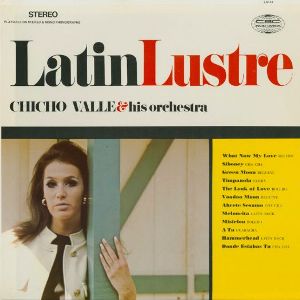
Latin Lustre
Capitol - 1968
Michael Panontin
|
Long before there was Hilario Duran or Evaristo Machado or even Jane Bunnett, there was Chicho Valle. In the 1950s and '60s, decades before concepts like 'world music' or 'globalization' were part of our vocabulary, Valle was holding court in many of Toronto's trendiest hotels playing the music of his native Cuba and beyond.
Valle arrived in Toronto in 1946 at a time when Toronto the Good was probably as white and uptight as a city could be. He was born in Cienfuegos and cut his teeth singing as a child in his brother's band. After spending four years leading a trio in the nightclubs of New Orleans, Valle was invited to sing on a program called Latin American Serenade on CBC Radio, where he would remain to host his own show for a good twenty years.
To say that Valle was a pioneer is to understate the degree of cultural solitude he would have felt at the time. There was a thriving jazz scene back in the thirties and forties, especially in Montreal, but the bands consisted mainly of Canadian or American-born musicians. It wasn't even until the 1950s that another Latin combo of note, a trio of Mexicans called Los Tres Compadres, started performing in Canada. Before they arrived, there was just Valle. According to musician and scholar Brigido Galvan, there was not even another Cuban musician in Toronto until 1990. "The arrival of live Latin music in Toronto," he wrote in his dissertation at York University, "preceded the arrival of any significant number of Latin American [immigrants] in Canada by about two and a half decades."
Toronto's reputation as a boring backwater was not without merit - it was definitely no Montreal on a Saturday night, that's for sure - but it was not totally out of the loop. In the fifties, its well-heeled citizens would have been familiar, either through travel or movies, with the hopping mad Latin scene taking place in New York and Miami, where the likes of Arsenio Rodriguez, Xavier Cugat and Perez Prado and their orchestras were setting clubs and dance floors on fire.
And so it was that Chicho Valle and his band could be found every week at such local landmarks as The Cork Room and Inn on the Park, as well as in the summers at Bigwinn Inn up in Muskoka. Of course, Galvan notes, despite the name of his group, Chicho Valle y Los Cubanos, "Chicho was the only Cuban in the group. The rest of the musicians were Anglo-Canadians." Valle's band in the fifties, which had initially started out as a trio, had expanded to a ten-piece orchestra that included Gordon Day on flute, Johnny Niosi on bass, Rudy Toth on piano and Stan Wilson on guitar.
Valle spent the better part of thirteen years, from 1950 to 1963, at The Cork Room at the corner of Bay and Wellington. By 1968, he had moved uptown and was firmly ensconced at the gleaming Inn on the Park, a modern motor hotel located in the fast-growing Don Mills suburb that had opened just five years earlier and which featured the swinging Cafe Discotheque, reputedly Canada's first discotheque. His stint there, at the renamed Cafe de L'Auberge, would last from 1966 to 1976. And it was during this time that he would issue two of his three albums, Latin Lustre (1968) and Este es Chicho Valle (1970).
Latin Lustre came out on the Capitol Canada label and was the first album to be issued as Chicho Valle and His Orchestra. The liner notes hint at the uphill battle Valle must have waged with the Canadian music establishment despite his decades in the limelight. To wit: "When the CBC first approached Chicho Valle about producing this record - his reaction was 'It's about time!'" The album was recorded at Toronto's illustrious Eastern Sound studio and produced by Dave Bird (whose resume also includes the likes of Guido Basso, Jimmy Dale and Bonnie Dobson). Of the assorted musicians appearing on Latin Lustre - and there are a total of twenty-three - perhaps the best known are the trombonists Laurie Bower and Ray Sikora.
Like Valle's live sets, the music on Latin Lustre is a mix of traditional hispanic numbers and contemporary pop hits, all done in a variety of Carribean styles from cha cha cha and bolero to guajira and beguine. It also includes a couple of "rock-latin" originals written by Sikora, who had previously made a name for himself on the West Coast playing with such luminaries as Stan Kenton, J. J. Johnson and Cannonball Adderley.
Valle's role gradually shifted from on stage to behind the scenes, first as music director for Four Seasons and then later heading up his own booking agency. Galvan, who arrived in Toronto in 1975 with his band Tequila, immediately looked him up. "Chicho had all the best gigs, all the big hotels," he recalled on the Cuban Serenade podcast. "He was very shrewd, but extremely charming."
These days Valles' big band musica tropical, as it was dubbed back then, may seem a bit quaint, especially to the youngsters moving their hips to the more contemporary sounds of salsa, merengue, bachata or reggaeton. But the dance classes now fill up during the week and the clubs overflow on the weekends. The TD Salsa on St. Clair, which bills itself as Canada's biggest salsa party, attracts hundreds of thousands of revellers every summer in Toronto. No doubt a little credit has to go to Valle, who like les voyageurs in 17th century New France, blazed a trail for the rest of us to follow.
|
|
Suggestions
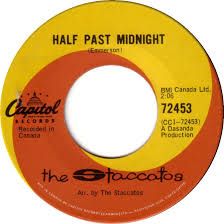
The Staccatos
Half Past Midnight / Weatherman - 7"
Capitol
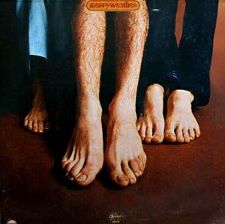
Merryweather
Merryweather
Capitol
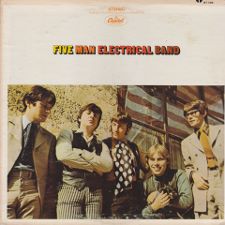
Five Man Electrical Band
Five Man Electrical Band
Capitol
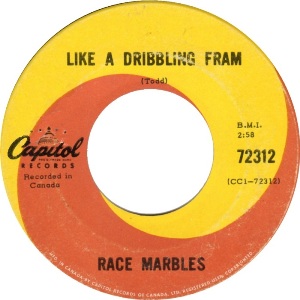
Race Marbles
Like a Dribbling Fram / Someday (the World Will Be as Lovely as Before) - 7"
Capitol
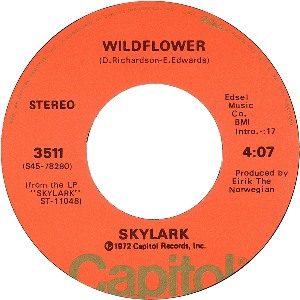
Skylark
Wildflower / The Writing's on the Wall - 7"
Capitol
|








